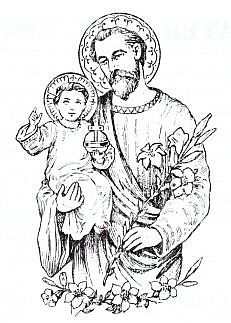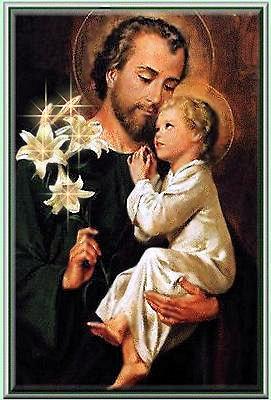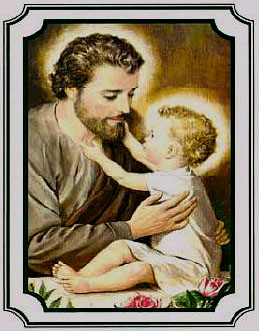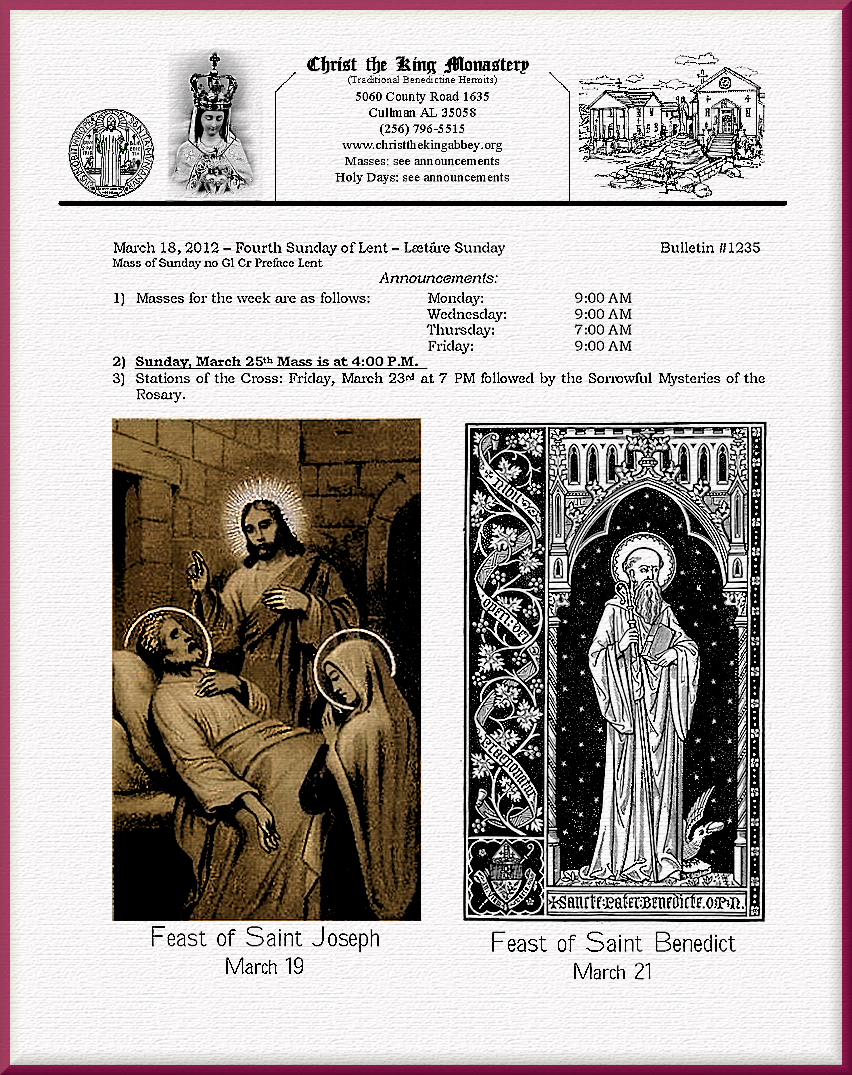SAINT JOSEPH
Patron of the Universal Church
[Feast day: March 19]
Edited by Rev. Hugo Hoever, S.O.Cist., Ph.D.
St. Joseph, the pure spouse of the Blessed Virgin Mary and foster father of our Blessed Lord, was descended from the royal house of David. He is the "just man" of the New Testament, the lowly village carpenter of Nazareth, who among all men of the world was the one chosen by God to be the husband and protector of the Virgin Mother of Jesus Christ, God Incarnate. To his faithful, loving care was entrusted the childhood and youth of the Redeemer of the world.
After the Mother of God, not one of the children of men was ever so gifted and adorned with natural and supernatural virtues as was St.
Joseph, her spouse. In purity of heart, in gentleness and manliness of character, he reveals to us the perfect type and model of the true Christian.
Poor and obscure in this world's possessions and honors, he was rich in grace and merit, and eminent before God in the nobility and beauty of holiness. Because St. Joseph was the representative of the Eternal Father on earth, the divinely appointed head of the Holy Family, which was the beginning of the great Family of God, the Church of Christ, on December 8, 1870, the Vicar of Jesus Christ, Pope Pius IX solemnly proclaimed the foster father of Jesus, Patron of the Universal Church, and from that time his feast has been celebrated on March 19th as a feast of high rank. In some places it is observed as a holy day of obligation.
Devotion to St. Joseph, fervent in the East from the early ages, has in later times spread and increased in such a marvelous way that in our day the Catholics of all nations vie with one another in honoring him. Besides the feast of March 19th there is another feast, that of St. Joseph the Workman, Spouse of the Blessed Virgin Mary, Confessor (May 1st). Promulgated in 1955, it replaced the older "Solemnity of St. Joseph" which had been celebrated since 1847 -- first as the "Patronage of St. Joseph" on the third Sunday after Easter and after
1913 as the "Solemnity of St. Joseph" on the Wednesday before the third Sunday after Easter.
From his throne of glory in heaven, St. Joseph watches over and protects the Church militant, and no one calls on him in need ever calls in vain. He is the model of perfect Christian life and the patron of a happy death. His patronage extends over the Mystical Body of Christ, over the Christian family, the Christian school, and all individuals who in their need appeal to his charity and powerful intercession, especially in the hour of death; for he who, when dying, received the affectionate ministry of his foster Son, Jesus, and his Virgin spouse, Mary, may well be invoked and trusted to obtain for us poor sinners the mercy of God and the grace of a peaceful and holy death.
CONSECRATION TO ST. JOSEPH
O, my beloved St. Joseph, adopt me as thy child, take care of my salvation, watch over me day and night, preserve me from the occasion of sin, obtain for me purity of soul and body! Through thy intercession with Jesus grant me a spirit of sacrifice, of humility and self-denial, a burning love for Jesus in the Blessed Sacrament, and a sweet tender love for Mary, my Mother. St. Joseph, be with me living, be with me dying and obtain for me a favorable judgment from Jesus, my merciful Savior. Amen
------------------------------------------------------------------------
OLRL offers the above Consecration and the "Ad te Beate Joseph"
(indulgenced prayer of Pope Leo XIII) on a prayer card for 2 cents ea. (http://olrl.org/pray/joseph.shtml)
for $2.
--
Sincerely in Christ,
Our Lady of the Rosary Library
"Pray and work for souls."
---------------------------------
For good Catholic books, articles and religious goods visit www.olrl.org.

Recommended Reading
Top
|
Top
|



